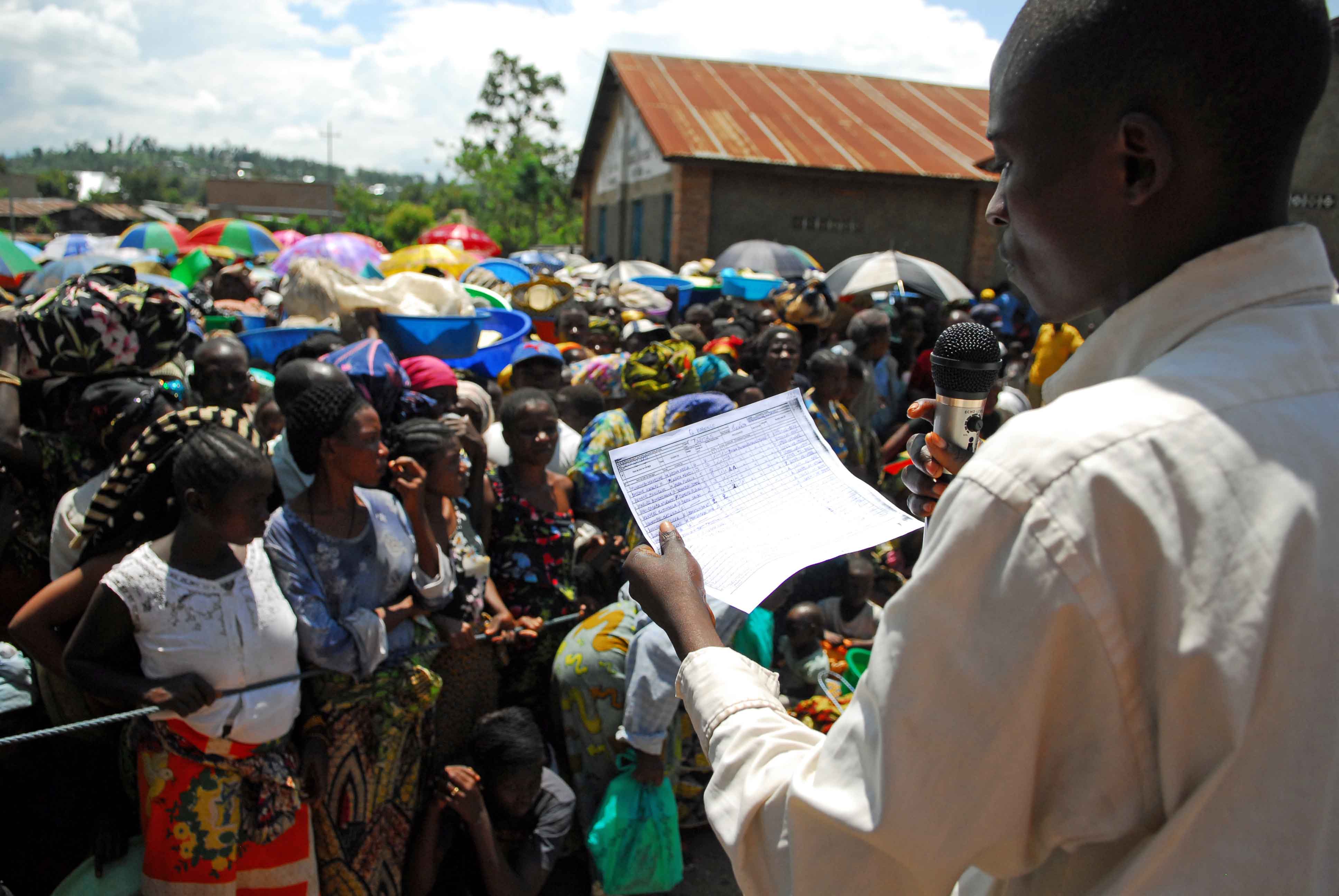“We received letters asking the International Rescue Committee [IRC] to withdraw from Rutshuru,” Ndiaga Seck, OCHA associate information officer in the provincial capital, Goma, said. “Last Friday, youths in Masisi marched along the streets demanding jobs. When these kinds of things happen, humanitarians cannot reach beneficiaries.”
The letters came as the German charity, Welthungerhilfe, suspended work in Walikale territory following threats to its staff. IRC later resumed operations.
“What all this means is that the situation in North Kivu is still volatile, especially in Rutshuru, Walikale and Masisi [territories],” Seck told IRIN on 23 March.
Some days before, armed Congolese soldiers had stormed into a hospital in Fizi, Katanga village, in South Kivu, kidnapping three rival fighters. The 11 March attack prompted staff of the charity, Spanish Doctors without Borders (MSF-Espagne), to leave the facility.
|
Photo: Jane Some/IRIN  |
| Reaching aid beneficiaries has become difficult following a recent upsurge in threats against aid agencies in the Kivu provinces (file photo) |
The incident, MSF said in a statement, had forced it to evacuate a surgical team that had been providing treatment in Hauts-Plateaux area.
"Wounded people were already afraid to come to the hospital of Katanga and seek help, in fear of being killed by armed men," Havet added. "Now, after this serious incident, I am afraid they will never be convinced that it is safe for them to seek any medical help."
Another charity, World Emergency Relief, said a clash between the Congolese army and Rwandan FDLR fighters in Rubuga village within the same territory had left 204 families without shelter. Their crops were also destroyed or stolen, the charity said on 22 March.
OCHA said the incident involving MSF would also affect the work of the International Medical Aid (AMI) and the International Committee of the Red Cross (ICRC). According to the agency, three incidents out of 10 reported in the Kivu provinces in February targeted humanitarians.
Fighting militia
Meanwhile, in Ituri District, some 15,000 people were apparently being held against their will by soldiers in villages between Bukiringi (85km south of Bunia, the main town in the district) and Zunguluka (123km south of Bunia), on suspicion that there were some militiamen among these civilians.
The army is involved in an operation against armed militias in the Kivu provinces. On 11 March, Gen Amuli Bahigwa, Congolese army commander in charge of the operation, codenamed Amani Leo, in the area, said 271 Rwandan FDLR fighters had been neutralised, including 175 in South Kivu and 96 in North Kivu.
|
Photo: OCHA  |
| North Kivu |
But he added: "Amani Leo is different from Kimia 2. To deserve the population's confidence, we, FARDC, must change our mindset. We must put an end to practices such as rape, forced labour, pillaging...I believe if troops change their conduct, confidence will be restored between us and the population and we will easily be accepted."
MONUC Force Commander Gel Babacar Gaye said his mission would support the Congolese army units in the operation.
UN sources in Goma estimate the fighters to number about 5,000. However, they are well-armed, trained and have integrated into the local community so they will not be easy to destroy, one security observer told IRIN.
eo/mw
This article was produced by IRIN News while it was part of the United Nations Office for the Coordination of Humanitarian Affairs. Please send queries on copyright or liability to the UN. For more information: https://shop.un.org/rights-permissions




